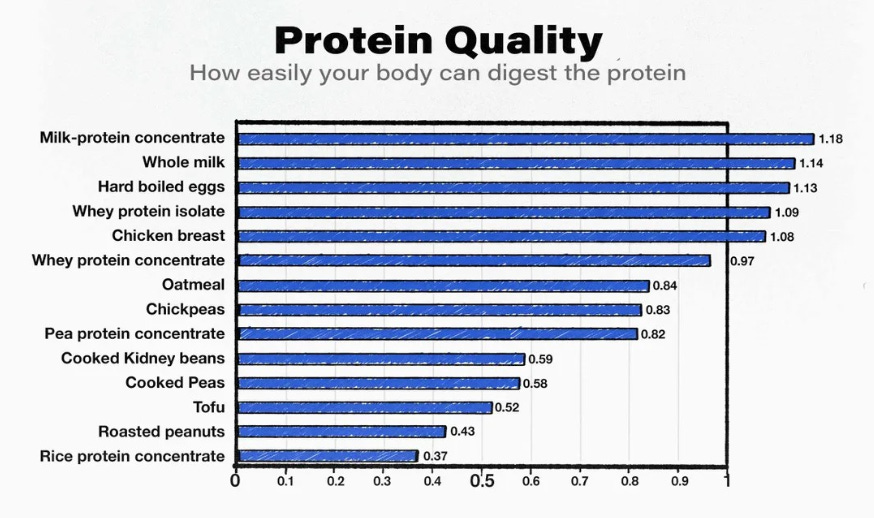· supplements · 7 min read
Are BCAAs Worth It? The Shocking Truth Revealed
BCAAs, also known as branched-chain amino acids, are essential nutrients that include leucine, isoleucine, and valine. These nutrients are crucial for muscle growth, energy production, and protein synthesis.
Are you tired of wasting money on supplements that promise results but never live up to their claims? If so, you’re not alone. With so many options on the market, it can be confusing to know which supplements are actually worth investing in. In this article, we’ll unravel the truth behind BCAAs and help you make an informed decision on whether they’re worth it or not.
What Are BCAAs?
BCAAs, also known as branched-chain amino acids, are essential nutrients that include leucine, isoleucine, and valine. These nutrients are crucial for muscle growth, energy production, and protein synthesis. Since the body does not produce BCAAs, it is important for athletes and bodybuilders to consume them through their diet or supplements.
Why Are BCAAs Popular?
BCAAs are popular due to their ability to aid in muscle recovery, provide an energy boost, and potentially promote muscle growth. Athletes and fitness enthusiasts often turn to BCAAs to improve their performance, reduce muscle soreness, and support muscle development during intense training sessions. The convenience of BCAA supplements also adds to their popularity, making it easy for individuals to meet their nutritional needs. Additionally, the versatility of BCAAs in various forms, such as powders, capsules, and flavored drinks, makes them appealing to a wide range of consumers.
What Are the Benefits of BCAAs?
BCAAs, or branched-chain amino acids, have become a popular supplement among athletes and fitness enthusiasts. But are they really worth it? In this section, we will take a closer look at the benefits of BCAAs and see if they live up to the hype. From aiding in muscle growth and repair to potentially boosting fat burning, let’s uncover the truth about BCAAs and their effects on the body.
Helps with Muscle Growth and Repair
- Consuming BCAAs, such as leucine, can greatly aid in muscle growth and repair by stimulating muscle protein synthesis.
- In addition, BCAAs have been shown to minimize muscle soreness after intense workouts, promoting faster recovery and repair of muscles.
- For athletes and fitness enthusiasts, integrating BCAAs into your diet can greatly facilitate the maintenance and repair of muscle tissue, crucial for optimal performance.
Reduces Exercise Fatigue
- Stay Hydrated: Drink water before, during, and after exercise to reduce dehydration, which can contribute to fatigue.
- Proper Nutrition: Consume a balanced diet with adequate carbohydrates to fuel your workouts and protein to support muscle recovery.
- Rest and Recovery: Ensure sufficient sleep and rest days to allow your body to recover and reduce exercise fatigue.
May Increase Fat Burning
BCAAs have the potential to increase fat burning by helping to maintain lean muscle mass while losing weight. This can result in a higher metabolic rate and improved fat oxidation.
What Are the Risks of Taking BCAAs?
As with any supplement, there are potential risks that come with taking branched-chain amino acids (BCAAs). Before incorporating them into your fitness routine, it’s important to consider these risks and whether they outweigh the potential benefits. In this section, we will discuss the potential risks associated with taking BCAAs, including how they may interfere with blood sugar control, cause digestive issues, and lead to an imbalance of BCAAs in the body. Understanding these risks can help you make an informed decision about using BCAAs in your fitness regimen.
May Interfere with Blood Sugar Control
- Monitor Intake: Consult a healthcare professional to determine a safe BCAA dosage and assess its impact on blood sugar levels.
- Regular Testing: Consistently track blood sugar levels when consuming BCAAs to ensure they remain within a healthy range and do not interfere with blood sugar control.
- Balance Diet: Pair BCAA intake with a balanced diet to complement overall blood sugar control.
Can Cause Digestive Issues
Consuming excessive BCAAs, such as leucine, isoleucine, and valine, can cause digestive issues such as nausea, stomach discomfort, and diarrhea. It’s important to follow the recommended BCAA dosage to prevent these negative effects.
Can Lead to BCAA Imbalance
- Monitor intake: Keep track of BCAA supplements and dietary sources to prevent excessive consumption and potential BCAA imbalance.
- Consult a professional: Seek advice from a nutritionist or healthcare provider for personalized recommendations and potential risks related to BCAA intake.
- Balanced diet: Maintain a balanced diet rich in various nutrients, including BCAAs, to prevent an imbalance of BCAAs in the body.
Are BCAAs Necessary for Everyone?
Despite their popularity in the fitness world, there is much debate about whether branched-chain amino acids (BCAAs) are truly necessary for everyone. In this section, we will explore the various individuals who may benefit from incorporating BCAAs into their nutrition regimen. We’ll discuss the specific needs of athletes and bodybuilders, vegans and vegetarians, and those with certain health conditions, and how BCAAs may play a role in supporting their overall health and fitness goals.
Athletes and Bodybuilders
- **Athletes and bodybuilders **greatly benefit from BCAAs as it aids in muscle recovery and supports muscle growth, ultimately enhancing their overall athletic performance.
- In addition, BCAAs can effectively reduce muscle soreness and fatigue during and after exercise, leading to more productive and efficient workout sessions for athletes and bodybuilders.
- For these individuals, BCAAs are a crucial component in maintaining muscle mass and improving exercise performance, making it an essential supplement in their fitness regimen.
Vegans and Vegetarians
- Individuals following a vegan or vegetarian diet can obtain BCAAs from plant-based sources such as quinoa, soy, and chickpeas.
- To meet daily requirements, incorporate BCAA-rich plant foods like lentils, black beans, and whole grains into your diet.
- If dietary intake is insufficient, consider BCAA supplements derived from vegan sources.
People with Certain Health Conditions
- Prioritize seeking professional medical advice for individuals with certain health conditions before taking BCAAs.
- Consult healthcare providers if you have liver or kidney problems, as BCAAs may exacerbate these conditions.
- Avoid BCAAs if you have maple syrup urine disease, as it can result in dangerous increases in amino acid levels.
What Are Some Natural Sources of BCAAs?
BCAAs, or Branched-Chain Amino Acids, have gained popularity in the fitness world for their potential benefits in muscle growth and recovery. While BCAAs can be taken in supplement form, they can also be found naturally in certain foods. In this section, we will discuss some common natural sources of BCAAs, including meat and poultry, dairy products, and legumes and grains. By incorporating these foods into your diet, you can reap the benefits of BCAAs in a more natural and balanced way.
Meat and Poultry
- Beef: A rich source of BCAAs, particularly leucine, essential for muscle protein synthesis.
- Chicken: Contains all three BCAAs - leucine, isoleucine, and valine, crucial for muscle growth and repair.
- Turkey: High in BCAAs, aiding in muscle recovery and reducing exercise-induced muscle damage.
Dairy Products
Dairy products, such as milk, cheese, and yogurt, are abundant natural sources of BCAAs. For example, a cup of milk contains approximately 2.2 grams of BCAAs, making it an easy and convenient way to add these vital amino acids to your diet.
Legumes and Grains
- Legumes and grains are fantastic natural sources of BCAAs.
- Legumes, including chickpeas, lentils, and beans, are abundant in BCAAs, especially leucine.
- Grains such as wheat, rice, and corn also provide BCAAs, adding to the overall intake of BCAAs.
Frequently Asked Questions
Is it worth investing in BCAAs?
Yes, BCAAs (branched-chain amino acids) are essential for muscle growth and recovery, making them a valuable supplement for athletes and fitness enthusiasts.
What makes BCAAs different from other supplements?
BCAAs contain three essential amino acids - leucine, isoleucine, and valine - which cannot be produced by the body and must be obtained from food or supplements. They are also directly absorbed by the muscles, making them more effective than other supplements.
Are there any proven benefits of BCAAs?
Yes, BCAAs have been shown to increase muscle protein synthesis, improve exercise performance, reduce muscle soreness, and decrease fatigue during workouts.
Can BCAAs help with weight loss?
While BCAAs alone may not directly lead to weight loss, they can help with weight management by preserving lean muscle mass and reducing appetite, making it easier to stick to a calorie deficit diet.
Are there any potential risks or side effects of BCAAs?
When taken in recommended doses, BCAAs are generally considered safe. However, some people may experience mild side effects like nausea or headaches. Those with certain medical conditions should consult a doctor before taking BCAAs.
Are BCAAs suitable for vegans and vegetarians?
Yes, BCAAs can be found in plant-based sources like soy, quinoa, and legumes, making them suitable for vegans and vegetarians. There are also many BCAA supplements available that are made from plant-based sources.






